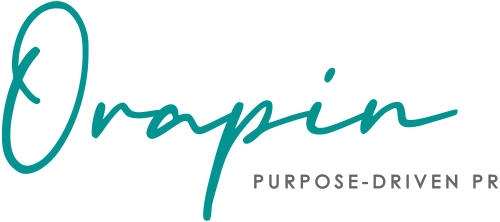
If you want to maintain strong (or any) relationships with reporters, you must avoid these six PR pitfalls
Public relations, like many professions, is all about relationships. For purpose-driven organizations, trade reporters, national reporters who cover your industry, and local reporters who cover the communities you serve can, and should, be on your shortlist of work besties.
Generally speaking, reporters and PR people have positive working relationships. We, as PR folks, can lead reporters to interesting stories, be a matchmaker for reporters looking for experts to speak to various topics, and help reporters amplify the voices of those who are making a positive impact in the world.
But…and this is a big “but”…when you are pitching for PR there are certain things you should never do or ask of a reporter. Building positive relationships with reporters takes time, effort, and respect for the unsaid boundaries of the PR practitioner/reporter relationship. Here is our list of PR pitfalls to avoid in order to maintain positive relationships with your VIP reporters!
1. Never pitch stories that aren’t newsworthy
Did you just add three new members to your board of directors? Did you just rent new kitchen space for your meals-on-wheels program? Did your foundation just celebrate its 8th anniversary of giving? Did you just implement a new software program to track the outcomes of your mental health programming? All are fantastic and may be very exciting for your organization. However, none of these things are newsworthy and therefore should not be pitched.
Reporters are very busy individuals; don’t waste their time with pitches that aren’t newsworthy. Ask yourself if you would read an article on the same topic by another company. Do you care if another added someone to their board? Likely not. While this type of news is important to you, it is not important to reporters or their audiences.
Overfilling a reporter’s inbox with non-newsworthy stories will ensure they stop opening your emails. Make sure all of your pitches are actually newsworthy, timely, important, and relevant to the reporter’s audience.
2. Never pitch stories to a beat reporter that are outside their beat
Always do your research. When you pull a list from a media database, be aware that someone who indicated they cover “health” may cover mental health, yoga, nutritional health, healthcare systems, healthcare products, or any variety of things somewhat related to “health.”
Research the reporter and see what stories they are writing. Reporters usually have a beat, and then a topic within that beat that they are particularly interested in covering. Look to see if they are covering fluffy stories, hard-hitting factual stories, or something in between.
If your story is not a fit for the reporter’s beat and writing style, then don’t pitch them. Once again, filling a reporter’s inbox with pitches that are irrelevant to their beat and their audience will ensure they stop opening your emails.
3. Never pitch self-serving, blatantly promotional story ideas
Once you feel confident that your story is newsworthy and you’ve selected the right beat reporter to cover your topic, do a self-check to make sure your story is not blatantly self-promotional. Should this “story” be an advertisement? Are you just repeating the content in your marketing materials?
You may have just launched an incredible new service for your constituents, or perhaps you have a new product hitting the market. But, if there is no “story” beyond the fact that you’ve launched this new great thing that you want people to buy or subscribe to or whatever, then it is a self-promotion item and it belongs on your social channels.
If you find yourself in this position, consider reframing the story. Can you have a client share their personal story where the service you are trying to highlight made a huge impact on their life?
The line between self-promotion and newsworthiness can be very fine. There are many nuances to consider and there isn’t really a blanket formula to determine which way your pitch falls. A good rule of thumb is to determine if the pitch and resulting story coverage is a) to get people to buy something or b) to tell people how great, wonderful, exponentially fabulous you are, then it is self-promotion and not news. Reporters see right through self-promotion. Be respectful of their goal to share news and tell stories. They are not there to sell your product or service for you.
4. Never offer the reporter an interview and then not accommodate their timing
One thing that will drive a reporter bonkers, and get you blacklisted quickly, is offering them an interview with your founder or CEO and then telling them that person is unavailable or unable to accommodate the reporter’s availability. When a reporter asks to set up an interview, you jump!
If a reporter responds to your pitch and wants to learn more, it’s your job to make it as easy as possible for them to write the story You want the reporter to walk away from their experience with you marveling at the interesting story you pitched to them, how quickly you accommodated their request for an interview, and how helpful you were throughout their time working with you. Facilitating a smooth process for the reporter will ensure they want to work with you again. Make their lives difficult with a general lack of availability or interest in accommodating their deadlines, and you won’t get a call back in the future.
5. Never ask a reporter if you can review the article before it is published
Once you provided the reporter with all the background info they’ve requested and facilitated interviews with your spokespeople, your job is finished. You must leave the rest of the story writing in the reporter’s capable hands. You may not request to review the article before it is published, that is a no-no. Not an option. Don’t even think about it.
You must trust the reporter to do their job. Most will do a great job, though there are times you’ll wish they had taken a different angle. Part of PR is putting your story out there and trusting that the reporter will cover your news in a fair and honest way. Asking a reporter if you can review their work will likely put your story in the trash pile. Remember, reporters are professionals and adults. Don’t be a helicopter parent.
6. Never ask a reporter to make revisions
In a similar vein, you may not ask a reporter to make a revision to the story once it is published. If there are minor typos – they misspelled a name, got a date wrong, flubbed a fact – then sure, you may let them know. You may not request a redo on a quote, that they reframe the story, or ask that they leave out speculations, opinions, or any other integral details.
Again, once you have provided a reporter with all the info they’ve asked for, you give up control over the direction of the story. Asking them to redo their work to paint you in a more flattering light is inappropriate and will guarantee you will not get a response from them (or likely any of their colleagues at the same publication), ever again.
Good PR etiquette – and thus good relationships – comes down to respect for the reporter
Maintaining a positive relationship with a reporter comes down to being respectful of their time and ability to do their job. Pitch relevant, interesting stories. Keep your pitches focused on impact, human interest, revolutionary ideas, and positive change as opposed to product sales. Be useful, easy to work with, and available as a resource. Help the reporter look good and do their job well. If you approach PR with the goal of making the reporter’s job easy, then you will gain many friends and lasting relationships with your media partners.

Diana Crawford is a seasoned public relations consultant with more than 15 years of agency, consulting, and in-house experience. She joined Orapin in 2013 and manages account services and client communications strategy development. She has worked across a variety of industries and has expertise with professional services, food/alcohol, health and wellness, lifestyle, sports, education, tech, and non-profit organizations.
